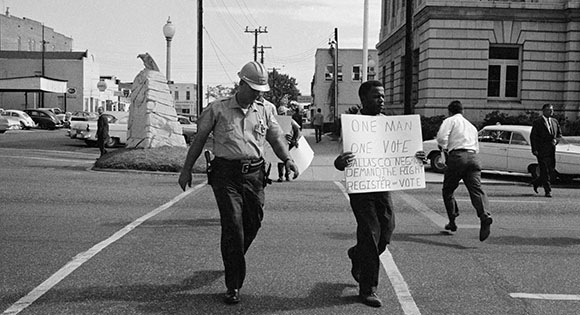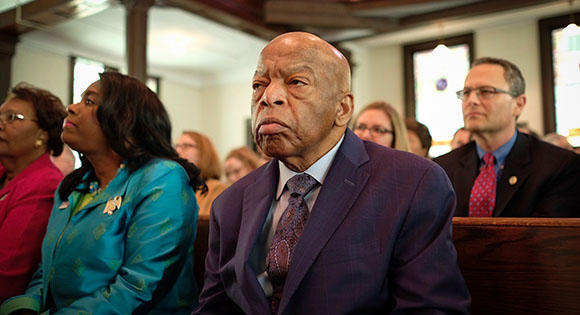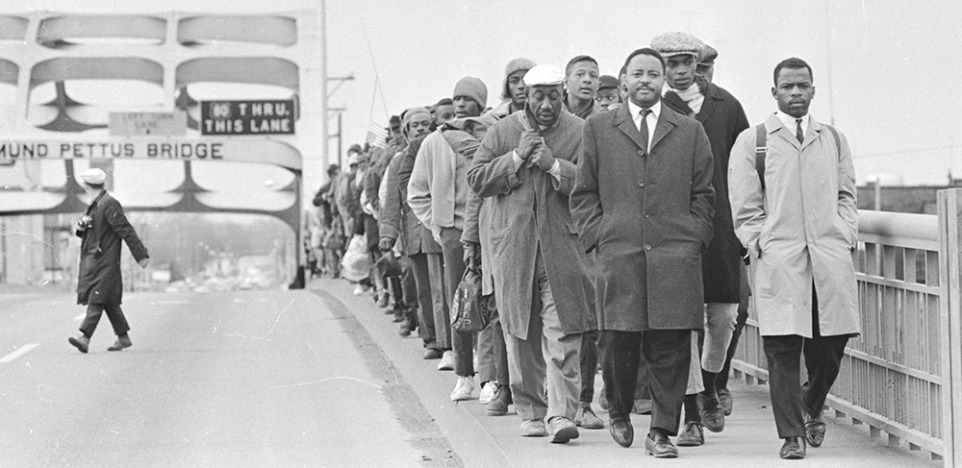John Lewis (1940 - 2020) was given many honors, awards and personal tributes in his long and illustrious career as a civil rights advocate and a Democratic U.S. Representative from Georgia. Roll Call magazine called him "a genuine American hero and moral leader who commands widespread respect in the chamber." He was regarded by many as "the conscience of the U.S. Congress" and received the Presidential Medal of Freedom from Barack Obama.
"The rarest thing of all in men who have made history is greatness of soul. It resides in the power to forgo benefits in the name of morality, in voluntary self-denial, not merely from motives of prudence but from goodness of heart."
-- Jacob Burckhardt
In these harsh and unsparing times, we yearn for leaders who can inspire us, model for us the kind of discipline and courage to stand our ground as we move through difficulties, and show us the way to fresh ground. Lewis was such a leader, and director Dawn Porter (Bobby Kennedy for President, Trapped, Gideon's Army, Spies of Mississippi) has crafted a very special documentary about his life and legacy. She covers his involvement in the civil rights movement, as one of the original 13 "Freedom Riders" in 1960, as one of those who sat in at lunch counters to desegregate eating establishments in Nashville, and as the lead marcher on the Edmund Pettus Bridge in Selma in 1965 which helped lead to the Voting Rights Law.

He served as the chair of the Student Nonviolent Coodinating Committee from 1963 - 1966 but left when the organization shifted its focus, and he was unable to abandon his deep and abiding allegiance to nonviolence. Throughout the documentary, we are given example after example of Lewis's integrity and his commitment to an ethic of love. Explaining why he took verbal and physical abuse at the lunch counters, for example, he explains that "We had to keep loving them . . . We gave them an opportunity to change because we believed they could."
Lewis was convinced that "the vote is still the best nonviolent we have in a democracy," so he focused much of his activism and his attention once elected to Congress on voting rights legislation. We see him speaking out during the 2018 against voter suppression efforts in his home state of Georgia and elsewhere.
"The first and last task of the leader is to keep hope alive."
-- John Gardner
The documentary is filled with wonderful moments, including an interview with Lewis in which he reminisces about preaching to the chickens on his family farm, his first meeting with Dr. Martin Luther King, Jr., and the support and influence of his wife Lillian. We see archival footage of Lewis participating in the marches, going door-to-door to register voters, and speaking at major events. A video taken by a staffer that went viral shows Lewis dancing to Pharrell Williams' "Happy."

We recognize his influence on generations of legislators as U.S. Representatives Alexandria Ocasio-Cortez, Ilhan Omar, and Iyanna Pressley talk about how he inspired them to become involved in politics. But perhaps some of the most touching scenes show Congressman Lewis walking through an airport or along the streets in Washington and being warmly greeted by people of all ages and races who just want to tell him "thank you."
John Lewis died on July 17, 2020, just as this documentary was released via virtual theaters. It is a wonderful tribute to a man who never lost hope. We owe it to him to hear and heed his final statement in the film.
.jpg)
